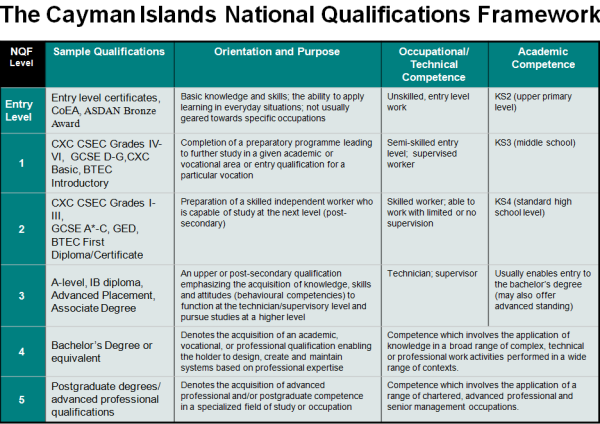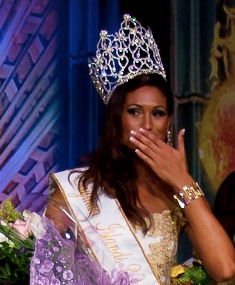Archive for September 26th, 2010

Teaching and learning
Given the depths to which education in the Cayman Islands was allowed to plumb, a continued national conversation on what and how our children are taught is vital. However, it’s a pointless exercise unless the public keeps up with what is happening in the delivery of education and what changes and improvements have already been made – and why.
Right in the middle of massive and well publicised changes to the whole education system, there is a constant cry that we need to reform education. How can we have any meaningful discussion as to what the aims and objectives are and whether new initiatives are working if the public has not even acknowledged that change is afoot?
Periodically, there are comments on CNS that government schools need a new curriculum, even though this was introduced two years ago and is now under its scheduled review. A discussion about what is good and bad about the 2008 National Curriculum, what works and what doesn’t is a good thing, but if you haven’t read it you need to do so before your opinion has any relevance.
And please! Stop saying we need to introduce (or reintroduce) vocational studies when this has already happened. We need to get on to the next stage of discussion. Are they the right subjects? Are they effective?
It’s time for everyone to stop fussing about “graduation” from high school and focus on what is actually important: external, internationally recognized exam results (including the vocational exams). Government schools provide a UK style of education, which means that graduation is a nice ceremony, a rite of passage perhaps, but it is not a qualification or an academic achievement and never was.
Graduates, take those certificates that were handed to you during the graduation ceremony, be proud of them, hang them on the wall … but don’t bother taking them to a job interview or including them in a college application because they are academically meaningless. Similarly, if you didn’t graduate because you fell short of the requirements, including attendance and behavior (and more power to the Department of Education Services for insisting on this) it’s not the end of the world.
Here’s the important question: how many exams did you pass and what grades did you get?
Part of the confusion here in the Cayman Islands is that people look at North America, or went to school in the US or Canada, where a high school diploma actually means something, and assume the same applies here. It doesn’t. In Britain and countries that follow the British school system there is no such thing as a high school diploma. The conversations needs to stick to improving exam results not stray into why students can graduate without academic achievement — an entirely irrelevant discussion.
Among the many changes going on, the most drastic is the restructuring of the high schools to a 5+1 system.
In the UK, children go to high school when they are 11 and take their GCSE’s or equivalents when they are 15/16. (In fact, in an increasingly competitive academic environment there is a trend for the most able students to take some GCSE’s early at 14/15 or even younger.) There is a range of options available following this including, especially for students aiming for university, two-year A-level courses, Advanced Placement or International Baccalaureate diplomas. A-level studies are broken down into a 1-year AS course, followed by a second year leading to A-level exams. At university, undergraduates take a 3-year bachelor’s degree.
In the US and Canada students remain at high school for six years, earn their high school diploma and then go on to a 4-year university course.
Back in the early 1990’s it was decided that the Cayman Islands government schools, despite the fact that they followed the UK system, would stretch the five years of high school into six – the kids would be a year older before they went to college or left school for the job market and it would give them an additional year to take their exams, hopefully raising the rather poor achievement levels. It didn’t. In fact, results got even worse and have been consistently dismal ever since.
The system also served the top students badly; those who headed off to a college in the US may have been given a year to mature emotionally but they had not been provided the opportunity to take pre-college courses to prepare them for the rigours of university study, especially in mathematics, where many struggled.
The Education Ministry is doing the right thing bringing Cayman back into line with the UK and everywhere else in the world that uses the same system. Last year’s Year 11 took their exams at the appropriate time.
The construction of the new schools tends to grab all the attention but we also need to focus our attention on the teaching and learning aspects of education. The current education minister is at pains to avoid acknowledging what the previous minister achieved but does appear to be doing the right thing: assessing the changes, continuing the things that worked and adapting the things that didn’t.
Let’s be clear: an historical average of 24% of students achieving 5 or more Level 2 passes is a big fat fail. Radical change is desperately needed, so let’s all keep up with what’s happening so we can discuss those changes productively.

Exam results up
 (CNS): Cayman Brac High School has had a banner year for exam results with 65% of the graduating Year 12 class obtaining five or more high level passes and 38% obtaining seven or more, parents were told at a PTA meeting last week. At a recent presentation to teachers on Cayman Brac, Education Ministry Senior Policy Advisor Clive Baker said that results for John Gray High School improved slightly over the previous year, with 38% of Year 12 students getting 5 or more high level passes, up from 36% on 2009. Historically, the average at CBHS has been just under 50% and about 24% at JGHS.
(CNS): Cayman Brac High School has had a banner year for exam results with 65% of the graduating Year 12 class obtaining five or more high level passes and 38% obtaining seven or more, parents were told at a PTA meeting last week. At a recent presentation to teachers on Cayman Brac, Education Ministry Senior Policy Advisor Clive Baker said that results for John Gray High School improved slightly over the previous year, with 38% of Year 12 students getting 5 or more high level passes, up from 36% on 2009. Historically, the average at CBHS has been just under 50% and about 24% at JGHS.
High level passes are described as Grades 1 to 3 in CXC or CSEC exams, and A* to C in GCSE exams, which are Level 2 on the new National Qualification Framework. The NQF is a chart showing the academic levels of achievement for the various external examinations that are taken by Cayman Islands students, which allows students, parents and potential employers to assess results on a nationally recognized scale (see NQF chart below). For example, a vocational BTEC Introductory course is the academic equivalent on the NQF as a CXC grade 4-6, while a BTEC First diploma is the equivalent of CXC grades 1-3.
While CXC/GCSE exam results improved in the Cayman Islands, in Britain GCSE pass rates continued to rise for 23rd year in a row. Though the equivalent results statistics are not available, the UK media reported that overall, 69.1% of all GCSE entries were awarded at least a C grade, up two percentage points on 2009, and 22.6% of entries achieved an A* or an A, up one percentage point on last year.
The Education Mnistry has not released results for the current Year 12 students on Grand Cayman (the first year group to take external exams at the end of Year 11) sayingthat these will be available next year when students have completed all their exams. However, these students now have a range of options available.
Baker said that around 20 Year 12 students at have chosen the Advanced Placement course, for which they must have at least 5 high-grade passes, including English and Maths, at A*-B/I-II grades. “This is a straightforwardly academic stream, aimed at the highest achieving students in the school,” he said.
AP better prepares students for university than the CXC/GCSEs, which are not designed to be pre-college courses. It also provides college credits for most US universities and in some cases could give students enough credit to skip the first year of a US bachelor’s degree, Baker said. Furthermore, as an accepted A-level equivalent, AP also offers a pathway to UK universities.
Advanced Placement courses are created by the College Board and are more rigorous than courses offered at US high schools. APs are individual subjects and college credit is usually given for a grade of 3 or above (5 being the highest).
According to the ministry, in future students must have passed exams at Level 3 on the NQF to qualify for a government scholarships for a bachelor’s degree. This includes the AP programme, but students can also take A-levels, which are offered at several local private schools, or an associate’s degree, which is offered at UCCI and ICCI.
There is around $2 million in this year’s budget for the Ministry of Education to construct a new building on Cayman Brac to house the restructured Year 12 group when it is introduced on that island, Baker revealed. While the restructuring of the high schools on Grand Cayman took place this year, and last year’s Year 11 have now started their new Year 12 options, the first year group on the Brac that will have the same opportunities is the current Year 9, who will choose their exam options at the end of this school year, at the same time as the Year 10 students.
However, CBHS Principal Adrian Jones told parents at a PTA meeting that BTEC courses in engineering, hospitality and music have already been introduced this year. These courses can lead to a Level 2 qualification on the NQF, he said.
To find out more about changes to the education system, go to the ministry’s blog, where there are PowerPoint presentations on what’s happening.


New Miss Cayman crowned
 (CNS): After a year’s absence the country now has a new Miss Cayman Islands. Tipped as a hot favourite to win, six foot, 23-year-old Cristin Alexander walked away with the pageant crown on Saturday night. Cristin is a recent graduate of the University of Western Ontario, where she earned a degree in psychology. Originally from Bodden Town, Cristin will now travel to China to represent Cayman in the Miss World pageant later this year. Shari Walton was First Runner-up for the title and Mysti Bush was Second Runner-up. Cristin also took the Best Legs title and Shari won Best Gown and Best Smile, Miss Photogenic went to Mysti and Miss Personality was awarded to Trudyann Duncan. (Photo by Dennie Warren Jr)
(CNS): After a year’s absence the country now has a new Miss Cayman Islands. Tipped as a hot favourite to win, six foot, 23-year-old Cristin Alexander walked away with the pageant crown on Saturday night. Cristin is a recent graduate of the University of Western Ontario, where she earned a degree in psychology. Originally from Bodden Town, Cristin will now travel to China to represent Cayman in the Miss World pageant later this year. Shari Walton was First Runner-up for the title and Mysti Bush was Second Runner-up. Cristin also took the Best Legs title and Shari won Best Gown and Best Smile, Miss Photogenic went to Mysti and Miss Personality was awarded to Trudyann Duncan. (Photo by Dennie Warren Jr)

Delhi Games’ village ‘ready by Wednesday’
 (BBC): The Chief Minister of Delhi, Sheila Dixit, says the athletes’ village for the Commonwealth Games won’t be finished until Wednesday. The news follows mounting criticism over India’s preparations for the Games, which open next Sunday. About 4,000 people are working around the clock to get the village ready, as competitors from across the world begin to arrive. Athletes from Kenya, Scotland and India are now living in the village. But some competitors have already pulled out of the Games after the accommodation was described as filthy, uninhabitable and unsafe. Ms Dixit visited the site on Sunday to check on progress.
(BBC): The Chief Minister of Delhi, Sheila Dixit, says the athletes’ village for the Commonwealth Games won’t be finished until Wednesday. The news follows mounting criticism over India’s preparations for the Games, which open next Sunday. About 4,000 people are working around the clock to get the village ready, as competitors from across the world begin to arrive. Athletes from Kenya, Scotland and India are now living in the village. But some competitors have already pulled out of the Games after the accommodation was described as filthy, uninhabitable and unsafe. Ms Dixit visited the site on Sunday to check on progress.
After talking to officials she said work was "on track".